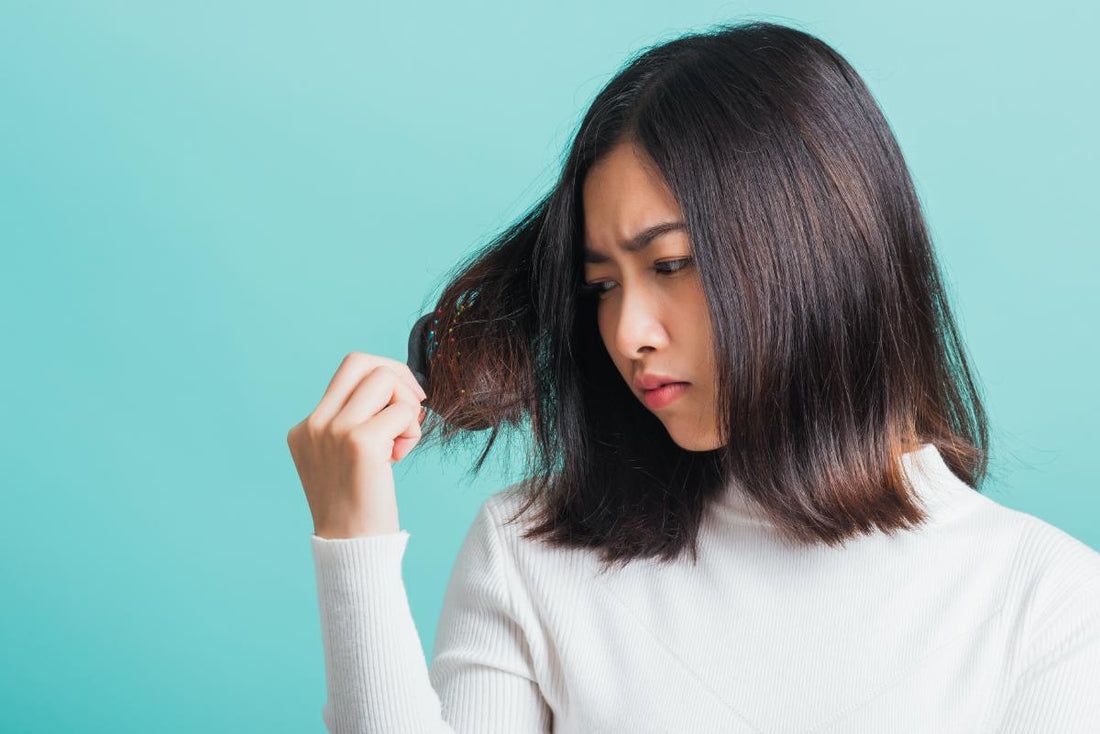Losing hair can be an overwhelming experience, often bringing concerns and questions about its causes and potential management. Understanding the intricate aspects of hair loss is the initial step toward effectively dealing with it. This guide aims to shed light on the multifaceted nature of hair loss, exploring what causes it, various types as well as strategies on how to treat hair loss and possibly prevent it.
What causes hair loss
Hair loss does not have a one-size-fits-all explanation. Multiple factors can contribute to this phenomenon, spanning from genetic predispositions to lifestyle choices. Genetics play a substantial role, with male and female pattern baldness being prevalent among individuals with family histories of hair loss. Hormonal fluctuations, medical conditions, medications, and certain habits also influence hair health.
Types of hair loss
Understanding the different types of hair loss is incredibly important in determining the appropriate management strategies:
Androgenetic Alopecia
Androgenetic Alopecia, commonly known as male or female pattern baldness, is deeply connected to genetics and hormonal imbalances. This type of hair loss occurs gradually and often follows a specific pattern. In males, it typically starts with a receding hairline and thinning at the crown, while females might experience overall thinning of hair.
Alopecia Areata
Alopecia Areata manifests as sudden hair loss in distinct patches on the scalp, beard, or other areas of the body. It's an autoimmune condition where the immune system mistakenly attacks the hair follicles, leading to hair loss. This form of alopecia can vary in severity, from small patches to extensive baldness.
Telogen Effluvium
Telogen Effluvium is triggered by significant stressors such as childbirth, surgery, illness, or emotional stress. It disrupts the hair growth cycle, pushing a large number of hair follicles into the resting phase, eventually leading to excessive shedding. Fortunately, this type of hair loss is often temporary and reversible once the underlying stressor is addressed.
Traction Alopecia
Traction Alopecia occurs due to repeated tension or pulling on the hair follicles. It's commonly seen in individuals who consistently wear tight hairstyles like ponytails, braids, or tight buns. Over time, this constant pulling damages the hair follicles, causing gradual hair loss, especially along the hairline.
Scarring Alopecia
Scarring Alopecia results in permanent hair loss due to the destruction and scarring of hair follicles. This type of hair loss can occur due to various factors such as inflammation, infections, or certain skin conditions. Once scarring occurs, hair follicles are unable to regenerate, leading to irreversible hair loss.
Effective Management
Managing hair loss involves various approaches, depending on the underlying cause and type. Options include medications targeting hormonal imbalances, treatments like topical solutions, laser therapies, or corticosteroid injections. For severe cases or when other methods fail, hair transplant surgery might be considered.
Preventive Measures
Treating and taking proactive steps can often prevent or mitigate hair loss:
Early Intervention
Addressing the issue as soon as it's noticed can prevent further loss.
Gentle Hair Care
Avoiding harsh treatments, excessive styling, and tight hairstyles can reduce stress on the hair.
Nutrient-Rich Diet
A balanced diet rich in proteins, vitamins, and minerals nourishes hair follicles.
Stress Management
Stress reduction techniques can help prevent certain types of hair loss triggered by stress.
Hair loss is a complex issue with a range of causes and types. Effective management involves a combination of treatments, lifestyle changes and preventive measures. It is incredibly important to approach hair loss holistically. A combination of medical intervention, lifestyle adjustments, and diligent care forms the most effective strategy. Consulting a healthcare professional or dermatologist is vital to tailor a personalised plan addressing the specific causes and needs of individuals grappling with hair loss.
You can strengthen your hair and encourage healthier hair growth with effective hair loss treatments such as hair and scalp treatments. At Venusde, we offer effective hair loss treatments such as Instant Folli-Boost Hair Growth Treatment that is capable of giving your scalp a dose of protein and nutrients to make your hair stronger. With these tips combined with our treatments, we will guide you to be the best “you” you can be.

